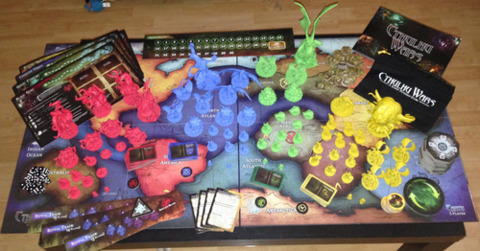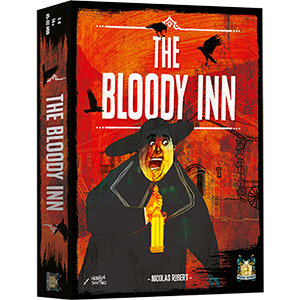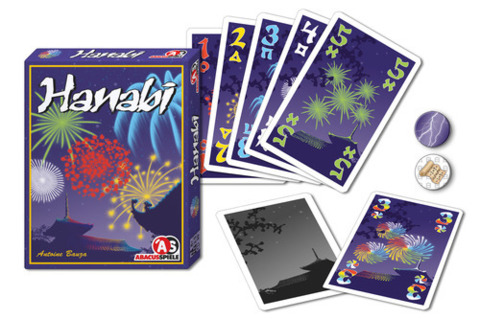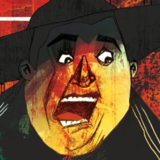A Response to the Bombcast Regarding Board Games
By Brackstone 72 Comments
So as someone who plays a lot of board games, I can actually see where the Bombcast crew are coming from, while still disagreeing. I think board games have an issue with publicity and accessibility which might be responsible for the crew's perception of them. If you want the short version, skip down the page a bit.
COMPLICATED BOARD GAMES AND ME
For context, any time I talk about designer board games, I'm talking about board games that fit into the non-Hasbro, non-Parker Bros. category. Basically the modern board game, as broad and unwieldy as that category is.
The way I see it, the bombcast's perception of board games dates back a number of years ago to roughly when designer board games started getting big again. For me, it's marked by the era when Fantasy Flight products really started showing up all over the place. When you look back then, and the type of games that have remained massively popular (despite massive design issues, in my opinion), the games were often very complicated. Lots of fiddly decks, lots of fiddly rules. Big bloated games going for theme and amount of mechanics rather than strong core mechanics. Basically, what were getting the most attention were lavish, complicated thematic american games, like Arkham Horror, or the complex, almost athematic, economics heavy euro games, like Ora et Labora.
That isn't to say that's all that was out there, but it was the most common stuff by far outside of the usual monopoly/life/risk fare. This was my experience discovering designer board games. My friends and I went through the typical ones: Arkham Horror, Catan, Battlestar Galactica, Dominion and others. This was because there weren't really many places selling these "designer" board games, and those that did focused on these, the most popular ones. It should also be noted that researching board games in much harder. They don't work in video reviews/previews nearly as well as board games, and the flaw of board game cafe's is that you'll spend a chunk of time in the restaurant reading the rules before you can actually play. The best way to find new board games is honestly to know a guy to walk you through them.

Back to the main point, recent years have seen a much broader interest in board games, so availability of everything is greater. That said, there's still a tendency for board games coverage to focus heavily upon the lavish, complicated, expensive stuff. Fantasy Flight, one of the biggest companies in the industry, still very much puts out those lavish theme and component heavy games. Likewise, Kickstarter has been both a great boon and a great detriment to board games. On Kickstarter, every game now comes with 12 different expansions and 14 different Kickstarter exclusives, all with unique mechanics, in addition to the complexity of the base game. That isn't to malign anyone who backs these things. I've certainly backed multiple, obscenely opulent board games for questionable reasons (Dark Souls, Cthulhu Wars, Banner Saga Warbands). But there is still a problem with the perception and expectations of modern board game audiences. Complex rules and miniatures are to board games what tacked on multiplayer and concerns about hours per dollar payed have been to video games. They are audience expectations both real and imagined that can, but not always, diminish the game in question rather than improve it by establishing an ill-fitting standard of what games should be.
THE SHORT VERSION/CONCLUSION (still kinda long though)

In other words, many of the most famous early designer board games, essentially the modern board game, were mechanically rough and complicated due to a focus on theme (Arkham Horror), or were mechanically heavy European style economy games with little player interaction (Ora et Labora). Both are complicated, both are unsuitable for a fun night with friends and beers regardless of actual quality. Recently, board game exposure has expanded greatly, and like the surge of indie games in the video game space, there is something for everyone coming out constantly, and I'd even say the average quality of a board game is much higher now than it used to be. However, the rise of board game Kickstarters has added additional problems. These games often get tons of buzz and coverage, as Kickstarter projects do, but due to how stretch goals work and the expectations/investments of the fans, they often become bloated far beyond the initial design in terms of mechanics, components and expansions. Again, there is something new for everyone coming out constantly and the old stuff is pretty good about sticking around, but a lot of what gets the publicity is the really fancy stuff. Even the issue of publicity is getting better though.
So while I cannot agree with what they said on the Bombcast, I also completely understand where they are coming from and why they feel that way, as I have often felt similarly. Keep in mind I'm no expert, just someone who's been paying attention to board games during this big modern resurgence, so it's more of a quick and dirty summary of what the situation has been for me. Experiences may vary.
RECOMMENDATIONS
Since I have argued above that discovering board games can be an issue, here are some suggestions. Some of these games I don't actually like all that much, but I view as the perfect intro to where board games are currently at. Also, to address Ben's issues, all these games have good player interaction, because like him, I think silently staring at cardboard adjacent to friends isn't much fun.
The Resistance: Get this if you want to lie to your friends for fun and profit. The base game is easy to wrap your head around, and there are excellent expansions if you feel like getting deeper into it. I'd recommend it over Avalon because Resistence starts simpler but can get more complicated than Avilon if you want it to.
Portal: The Board Game: Yes, that Portal. It honestly feels like a classic style game but with fresh, modern mechanics. It's a great transition between the Hasbros and Parker Bros. of the world to the modern board game. It doesn't play anything like the video game of course, but uses it's theme quite well.
Catan: It's famous, it's everywhere, good intro to negotiation and economy stuff. Again, good expansion selection. It's the monopoly of designer board games in many ways, some good, some bad. Also, it's the weird exception to a lot of what I said above. An early designer game, not fully a euro game, broad appeal, random chance, loose theme, simple mechanics. It's exceptional popularity definitely reflects the interesting space it occupies.

The Bloody Inn: A hidden gem about running a murder hotel to loot and bury corpses before the cops catch you. Not a graphic game by any means, but thematically not for kids. Simple in that almost every action in the game is accomplished by spending cards from your hand. For example, spend any 2 cards from hand to murder a level 2 "guest", spend any other 2 to bury the corpse and steal his money.
Sushi Go Party: Great intro to the concept of drafting card games (choose a card from a deck, pass to the next player). Simple, affordable, it basically comes with expansions for free, so it has good value.
Forbidden Island: Great introduction to co-op games. Very simple, small, affordable. It's about finding treasures on an island before it sinks. If you find it too simple, it's very easy to step up to the widely available Pandemic from here (NOT Pandemic Legacy), as they have a number of mechanical similarities.

Hanabi. Very small, very cheap ($10), very simple. Basically a co-op card puzzle, where you can only see other people's cards and never your own. The entire game is about communicating what's in other people's hands. It's honestly one of the coolest, most addictive games I've ever played and an instant recommendation to everyone.
Finally, since Brad mentioned it with Hungry Hungry Hippos and Operation, here are some dexterity games!
Catacombs: It's a longer (1.5-2 hours) 1v4 dungeon crawl game, but the gameplay is entirely about flicking wooden elf disks into evil wooden orc disks, kind of like Crokinole but with ghosts and wizards. Super fun combination of dungeon crawl mechanics and hands on gameplay. A bit more on the complicated side, but still fairly accessible. Also, it really stretches the premise of flicking disks at other disks to its limits in all the right ways.
Junk Art: It's a game about stacking objects that definitely should not be stacked. There are various game modes, and it offers similar thrills to Jenga (wooden towers falling down) while still being very much it's own thing. Basically Jenga with irregularly shaped blocks (and orbs, and pyramids, and so on).
Thanks for reading my insomnia-induced stream of consciousness. And sorry for any mistakes/ugly formatting. I've never made a blog post before, but had been thinking of making one about board games for a while. The Bombcast gave me an excuse to give it a shot.

Log in to comment